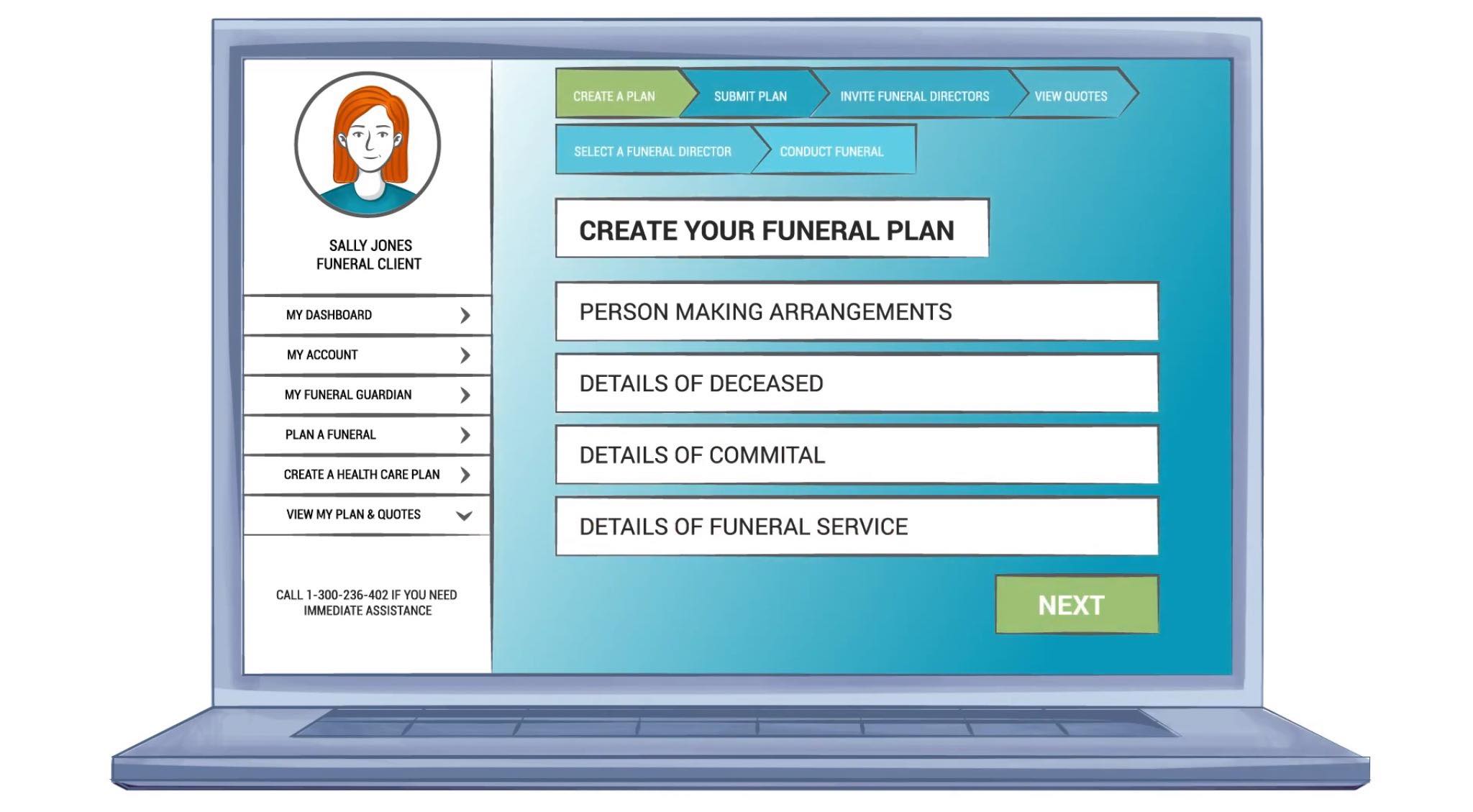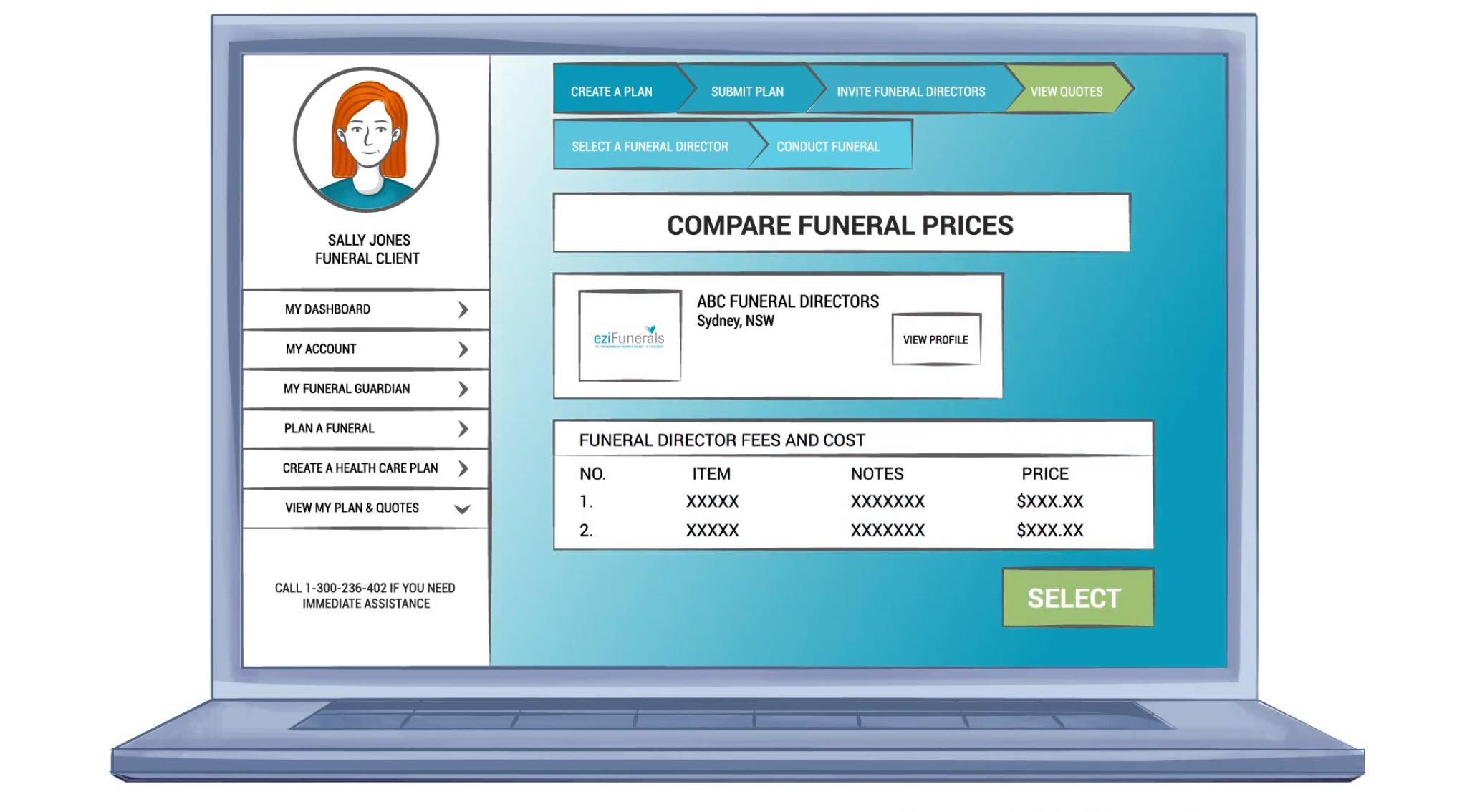Deciding whether to donate your body to science is something that requires significant thought. Not only around ensuring you understand exactly what the process entails, but also considering the emotional impact on yourself and your family.
Whereas most Australians will opt for a more traditional funeral services, less than 2,000 will donate their bodies to science each year.
This guide covers everything you need to know about being a body donor, including:
- How do you donate your body to science?
- Where can you donate your body to science?
- What happens when you die?
- What is your body used for?
- Funeral arrangements and funeral costs for body donors
- Other considerations
What is the process?
While the exact process you need to follow to donate your body to science will differ depending on the university or organisation you make arrangements with, it will generally involve the following:
- Contact the university directly to request the relevant donor forms
- Donor forms need to be completed by you and your family (or the executor of your will). If you do not have a next of kin or executor, you can contact the state trustee to act as your executor
- You will be sent a confirmation and a donor card by the university
- Inform your family, doctor, nursing home administrator and any other relevant people or caregivers of your arragements
- You may (but are not required) to mention that it is your wish to have your body donated in your will
It’s important to note that even once you have signed all the relevant forms, you are able to change your mind at any time should you no longer wish to donate your body to science.
Where can you donate your body to science?
There a number of universities and research organisations across Australia that you can donate your body or certain tissues to. Some of the main universities in each state are set out below.
Body Donation NSW
| University of NSW | 02 9385 2480 |
| University of Sydney | 02 9351 9457 |
| University of Western Sydney | 02 4620 3790 |
| University of Wollongong | 02 4221 3800 |
| University of New England Armidale | 02 6773 3087 |
| Macquarie University | 02 9812 3543 |
| University of Technology Sydney | 02 9514 9703 |
Body Donation Victoria
| University of Melbourne | 03 8344 5809 |
Body Donation Queensland
| University of Queensland | 07 3365 2703 |
| Griffith University | 07 5552 7700 |
Body Donation South Australia
| University of Adelaide | 08 8303 5998 |
Body Donation Western Australia
| University of Western Australia | 08 6488 3288 |
Body Donation Tasmania
| University of Tasmania | 1800 792 661 |
Body Donation ACT
| Australian National University | 02 6125 2198 |
What happens when you die?
Assuming you have made the necessary arrangements to donate your body, the following steps take place immediately following your death.
Disqualifying factors
Not all bodies are accepted upon death (even if the correct prior arrangements have been made). Depending on the rules of the university, there are a number of reasons why your body may be rejected or disqualified from donation, including the following:
- The university’s facilities are at capacity
- Your body is too far away from the university
- An autopsy was performed
- There was a delay in notification of your death and/or collection of your body
- The cause of death was due to a significant disease
Body collection
Depending on your place of death, your body will be picked up by university approved funeral directors, who will transport your remains to the relevant university department.
Initial tests
Once your body arrives at the university, it will undergo a range of tests for diseases, including:
- Hepatitis
- HIV
- Mad cow disease
- Tuberculosis
If the tests return positive readings on any disqualifying diseases, your body will be rejected.
Embalming
Assuming you pass the necessary tests, your body will be embalmed. A process in which blood in your body is replaced by chemical fluids via a blood vessel in your groin. Embalming disinfects the body and helps to preserve it against decay.
Storage
Once embalmed and prepared, your body will be placed in storage until it is ready for use for teaching and academic purposes.
How long is the body kept by the university?
When your body is picked up from the place of death, the university will notify your next of kin that they will likely keep your body for a period of 2-4 years, and that some tissues or body parts may be kept as samples indefinitely.
What is your body used for?
When your body is ready for use, it will be taken out of storage for study. While the specifics of what your body will be used for (and how) will differ depending on the university and their needs, a typical process might involve the following:
- Group work on your body by 6-8 students at a time
- Initial removal of surface skin and tissue
- Dissection of muscles and internal organs
- Investigation for signs of disease that may have caused your death
This thorough process of dissection and investigation can last several months. Once it has concluded, your remains will be reassembled before being placed in a coffin for cremation or burial.
What happens when you donate your body to science can be a difficult thing to imagine with just words alone. Below are some images of students working on a cadaver and a cadaver with its surface tissue removed.
Funeral arrangements for body donors
The university or research organisation will normally cover all (or most) of the funeral costs if you are happy to follow their typical arrangements. While we wouldn’t recommend donating your body to science simply to save money, it is one of the cheapest ways to arrange a funeral.
While the exact specifics will change between universities, below are some general factors to consider when it comes to body donation and funeral arrangements.
Memorial Service
Following your death, your family are free to hold a memorial service (i.e. a funeral service where the body is not present).
Cremation
Most organisations will let families choose between a simple burial or cremation, though cremation is generally the preferred disposal option for universities.
Standard cremations will take place at the same crematorium with which the university has an arrangement with. If your family wishes to have the cremation elsewhere, this will usually be at your own cost.
Most universities will also pay for the cost of a brief, non-denominational committal service at the time of the cremation.
Burial
Universities often arrange for burials to take place at a public burial ground. Public burial grounds are not available for visitation. This means that in addition to the fact that your family will not be able to visit your grave in the future, you will not be able to hold a graveside service or dual service.
If you would like to have a grave that is open for visitation, you may purchase your own burial plot at your own cost.
Similar to cremations, the university will often cover the cost of a simple non-denominational burial service at a chapel.
Other considerations
Donating your body to science is a worthy cause – it helps to educate the next generation of medical, dental and science students. It’s also a cost effective option as all funeral costs are normally paid by the university if you are happy to follow their standard burial or cremation procedure.
However, just because you might be comfortable with the decision, it doesn’t mean that your family will. Many families often express that as the body is usually not returned for 2-4 years, it can be a long period after death where there is a lack of closure. Whatever your decision, it’s important to properly discuss the issue with your loved ones.

About eziFunerals
eziFunerals supports individuals and families cope with end of life decisions, death and funerals. We are an independent, Australian-owned and operated company. We are not part of any other funeral company.
Our member Funeral Directors operate in Sydney, Melbourne, Brisbane, Perth, Adelaide and Australia wide. Thet are chosen for their knowledge, quality, service, personalisation and experience. They go above and beyond, and will take the time to support the family.
For more information or to make contact with a trusted Independent funeral director, call eziFunerals on 1300 236 402 or visit www.ezifunerals.com.au.




